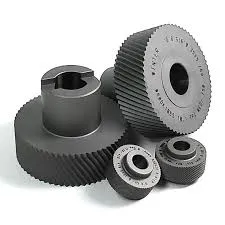
-
 Afrikaans
Afrikaans -
 Albanian
Albanian -
 Amharic
Amharic -
 Arabic
Arabic -
 Armenian
Armenian -
 Azerbaijani
Azerbaijani -
 Basque
Basque -
 Belarusian
Belarusian -
 Bengali
Bengali -
 Bosnian
Bosnian -
 Bulgarian
Bulgarian -
 Catalan
Catalan -
 Cebuano
Cebuano -
 Corsican
Corsican -
 Croatian
Croatian -
 Czech
Czech -
 Danish
Danish -
 Dutch
Dutch -
 English
English -
 Esperanto
Esperanto -
 Estonian
Estonian -
 Finnish
Finnish -
 French
French -
 Frisian
Frisian -
 Galician
Galician -
 Georgian
Georgian -
 German
German -
 Greek
Greek -
 Gujarati
Gujarati -
 Haitian Creole
Haitian Creole -
 hausa
hausa -
 hawaiian
hawaiian -
 Hebrew
Hebrew -
 Hindi
Hindi -
 Miao
Miao -
 Hungarian
Hungarian -
 Icelandic
Icelandic -
 igbo
igbo -
 Indonesian
Indonesian -
 irish
irish -
 Italian
Italian -
 Japanese
Japanese -
 Javanese
Javanese -
 Kannada
Kannada -
 kazakh
kazakh -
 Khmer
Khmer -
 Rwandese
Rwandese -
 Korean
Korean -
 Kurdish
Kurdish -
 Kyrgyz
Kyrgyz -
 Lao
Lao -
 Latin
Latin -
 Latvian
Latvian -
 Lithuanian
Lithuanian -
 Luxembourgish
Luxembourgish -
 Macedonian
Macedonian -
 Malgashi
Malgashi -
 Malay
Malay -
 Malayalam
Malayalam -
 Maltese
Maltese -
 Maori
Maori -
 Marathi
Marathi -
 Mongolian
Mongolian -
 Myanmar
Myanmar -
 Nepali
Nepali -
 Norwegian
Norwegian -
 Norwegian
Norwegian -
 Occitan
Occitan -
 Pashto
Pashto -
 Persian
Persian -
 Polish
Polish -
 Portuguese
Portuguese -
 Punjabi
Punjabi -
 Romanian
Romanian -
 Russian
Russian -
 Samoan
Samoan -
 Scottish Gaelic
Scottish Gaelic -
 Serbian
Serbian -
 Sesotho
Sesotho -
 Shona
Shona -
 Sindhi
Sindhi -
 Sinhala
Sinhala -
 Slovak
Slovak -
 Slovenian
Slovenian -
 Somali
Somali -
 Spanish
Spanish -
 Sundanese
Sundanese -
 Swahili
Swahili -
 Swedish
Swedish -
 Tagalog
Tagalog -
 Tajik
Tajik -
 Tamil
Tamil -
 Tatar
Tatar -
 Telugu
Telugu -
 Thai
Thai -
 Turkish
Turkish -
 Turkmen
Turkmen -
 Ukrainian
Ukrainian -
 Urdu
Urdu -
 Uighur
Uighur -
 Uzbek
Uzbek -
 Vietnamese
Vietnamese -
 Welsh
Welsh -
 Bantu
Bantu -
 Yiddish
Yiddish -
 Yoruba
Yoruba -
 Zulu
Zulu
types of thread rolling machine factory
Types of Thread Rolling Machines and Their Applications
Thread rolling is a highly efficient process used in various industries to create external threads on fasteners and other components. The method is preferred over cutting due to its ability to produce stronger threads while minimizing material waste. Thread rolling machines come in various types, each designed to cater to specific production needs. This article explores the different types of thread rolling machines available in factories and their applications.
1. Flat Die Thread Rolling Machines
Flat die thread rolling machines are among the most common types used in manufacturing industries. These machines employ two flat dies, with the workpiece placed between them. The dies rotate and compress the material to form the desired thread shape. Flat die machines are particularly suitable for producing small to medium-sized components, making them ideal for manufacturing screws, bolts, and other fasteners. They are known for their ability to produce high-precision threads quickly and efficiently.
2. Mould Die Thread Rolling Machines
Mould die thread rolling machines utilize specially shaped dies that can handle more complex thread designs. These machines are equipped with external and internal molding processes that enable the creation of varied types of threads, including tapered threads. Mould die machines are especially useful in industries that require custom thread patterns, such as automotive and aerospace sectors. They can operate on a wide range of materials, including steel, aluminum, and plastics, providing flexibility in production.
3. Rotary Thread Rolling Machines
Rotary thread rolling machines utilize a rotary motion to create threads through a rolling process. These machines are particularly effective for large-scale production runs. The workpieces are continuously fed into the machine, allowing for uninterrupted production and higher throughput. Rotary machines are often employed in mass production of fasteners where high-speed operations are essential. Additionally, they offer the advantage of uniform thread depth and accurate pitch, contributing to overall quality.
types of thread rolling machine factory

4. Vertical Thread Rolling Machines
As the name suggests, vertical thread rolling machines employ a vertical orientation to perform the thread rolling process. These machines are particularly beneficial for producing longer components, as their design allows for efficient handling of tall parts. Vertical machines often come equipped with advanced controls for precise adjustments, making them suitable for industries that require high-quality threaded components, such as medical devices and precision engineering.
5. CNC Thread Rolling Machines
CNC (Computer Numerical Control) thread rolling machines represent a significant advancement in thread rolling technology. These machines are controlled by computer software, allowing for highly accurate and repeatable production. CNC machines can produce complex thread profiles with minimal human intervention, making them ideal for industries that prioritize precision and quality control. They are commonly used in high-value applications, including aerospace, automotive, and electronics.
6. Multi-Station Thread Rolling Machines
Multi-station thread rolling machines are designed for batch production, allowing multiple parts to be processed simultaneously. This type of machine is highly efficient, reducing production time and increasing output. Multi-station machines are often used in factories where production volume is high, such as in the manufacture of bulk fasteners or components for assembly lines. Their versatility allows them to handle various sizes and shapes of components.
Conclusion
Thread rolling machines play a crucial role in the manufacture of threaded components across various industries. The choice of machine type largely depends on the specific requirements of the manufacturing process, including component size, material, and desired thread profile. From flat die machines to advanced CNC technologies, each type of thread rolling machine offers unique benefits that cater to different production needs. As manufacturing technologies continue to evolve, the efficiency and capabilities of thread rolling machines are expected to improve, making them an indispensable part of the manufacturing landscape.
